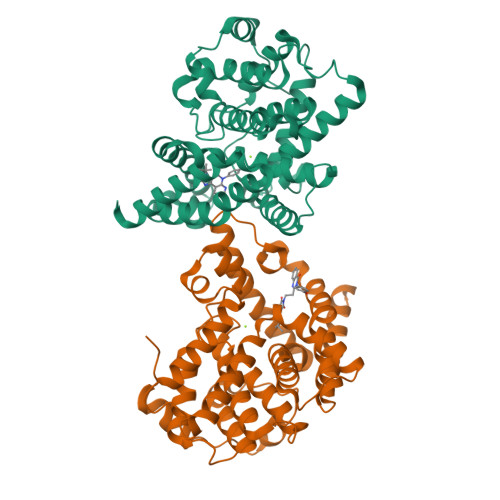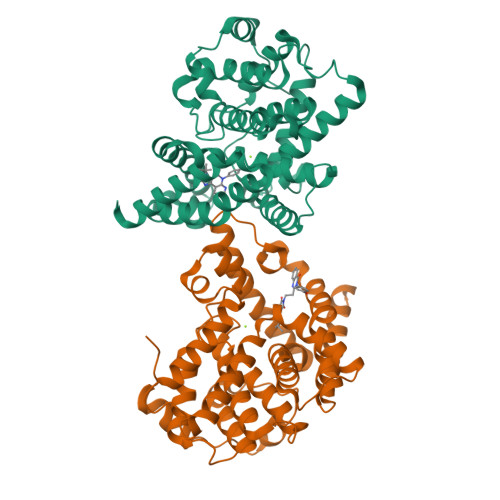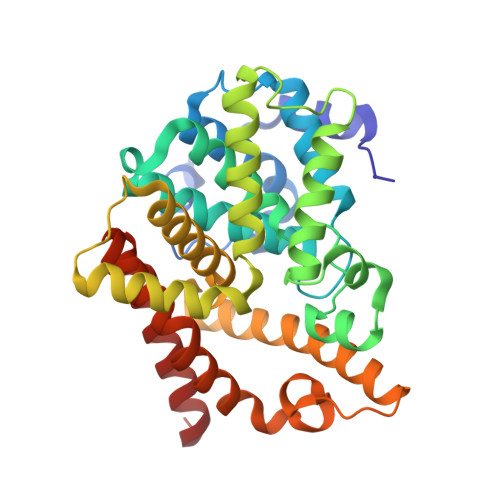Discovery of [(11)C]MK-8193 as a PET tracer to measure target engagement of phosphodiesterase 10A (PDE10A) inhibitors.
Cox, C.D., Hostetler, E.D., Flores, B.A., Evelhoch, J.L., Fan, H., Gantert, L., Holahan, M., Eng, W., Joshi, A., McGaughey, G., Meng, X., Purcell, M., Raheem, I.T., Riffel, K., Yan, Y., Renger, J.J., Smith, S.M., Coleman, P.J.(2015) Bioorg Med Chem Lett 25: 4893-4898
- PubMed: 26077491
- DOI: https://doi.org/10.1016/j.bmcl.2015.05.080
- Primary Citation of Related Structures:
4ZO5 - PubMed Abstract:
Phosphodiesterase 10A (PDE10A) inhibition has recently been identified as a potential mechanism to treat multiple symptoms that manifest in schizophrenia. In order to facilitate preclinical development and support key proof-of-concept clinical trials of novel PDE10A inhibitors, it is critical to discover positron emission tomography (PET) tracers that enable plasma concentration/PDE10A occupancy relationships to be established across species with structurally diverse PDE10A inhibitors. In this Letter, we describe how a high-throughput screening hit was optimized to provide [(11)C]MK-8193 (8j), a PET tracer that supports the determination of plasma concentration/PDE10A occupancy relationships for structurally diverse series of PDE10A inhibitors in both rat and rhesus monkey.
Organizational Affiliation:
Discovery Chemistry, Merck Research Laboratories, West Point, PA 19486, USA. Electronic address: chris_cox@merck.com.




















